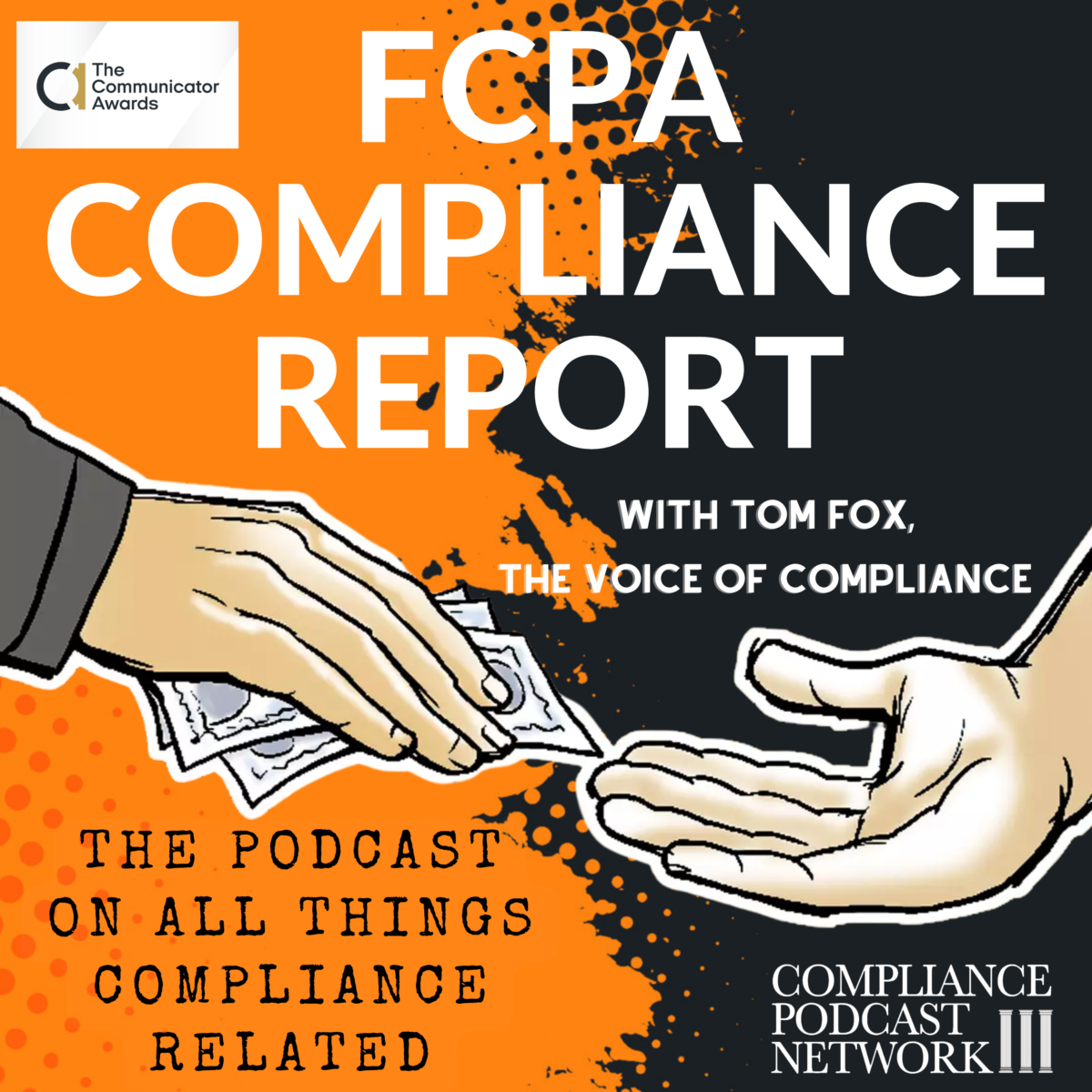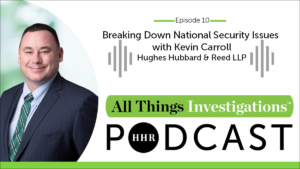I once had a boss whose catchphrase was, ‘May you live in interesting times.’ That applied back in the first decade of this century and is even more appropriate now. In a world that often feels like it is constantly shifting beneath our feet, the role of the corporate compliance professional has never been more crucial or challenging. In recent New York City Bar Association Compliance Institute remarks, Principal Associate Deputy Attorney General Marshall Miller offered timely insights on the Department of Justice’s (DOJ) evolving approach to corporate criminal enforcement. His message was that compliance professionals are essential to organizational success, national security, and the broader rule of law.
- Individual Accountability as the Cornerstone of Corporate Compliance
Miller emphasized that individual accountability remains a primary focus of the DOJ’s corporate criminal enforcement. According to Miller, they are prosecuting individuals at the top or throughout the corporate hierarchy, as it sends a strong message that misconduct is not tolerated and reinforces deterrence across the board.
For compliance officers, this focus on individual accountability reinforces the importance of training and awareness programs that help employees understand the personal stakes of unethical behavior. Compliance programs must communicate that misconduct has consequences for the organization and those directly involved.
This means compliance professionals should regularly update training modules to reinforce the personal consequences of non-compliance. Consider scenarios that show employees how individual misconduct can lead to legal repercussions, strengthening the deterrence message.
- Transparency and Consistency in Enforcement Policies
One of the most significant updates shared by Miller is the DOJ’s emphasis on clarity, consistency, and predictability across its corporate enforcement policies. In past years, self-reporting or cooperating with investigations was often perceived as a gamble. Today, under new DOJ guidelines, a clear framework outlines expectations, rewards cooperation, and even encourages voluntary self-disclosure of misconduct.
This transparency is a game-changer for compliance professionals, who often need concrete examples and assurances to secure buy-in from executives and board members. Compliance leaders can now present a more straightforward business case for ethical behavior, outlining the risks of non-compliance and the potential benefits of self-disclosure.
Every corporate compliance function should leverage the DOJ’s published guidelines to develop a compliance strategy that aligns with the DOJ’s expectations. Create resources for your leadership team that show the tangible benefits of voluntary self-disclosure, including reduced penalties and favorable resolutions.
- Empowering Whistleblowers and Enhancing Self-Disclosure Programs
Miller announced the launch of a new two-part DOJ whistleblower program that provides different rules and incentives based on whether the whistleblower was involved in criminal conduct. For those not involved, a DOJ awards program now provides a percentage of forfeited funds to the whistleblower. For those involved, whistleblower non-prosecution agreements are available.
This change holds significant implications for compliance programs. Whistleblower protection and incentive structures must be communicated and properly managed, ensuring employees know their rights and the benefits of reporting unethical behavior. With DOJ’s strong support, compliance leaders can strengthen whistleblower protections and encourage a culture of transparency.
Expanding whistleblower training and reporting channels to reflect the DOJ’s updated stance would be best. Emphasize protection and incentivization and ensure employees understand how these policies can benefit them if they report wrongdoing.
- The Role of Incentives and Compensation Clawbacks in Compliance
The DOJ’s updated compliance approach emphasizes the role of compensation structures in promoting compliance or enabling unethical behavior. DOJ now evaluates incentive structures as part of every criminal resolution, rewarding companies that utilize clawbacks when executives are involved in misconduct.
For compliance professionals, this focus on compensation is an opportunity to align reward structures with ethical performance. Compliance officers can work with human resources to design and implement compensation plans that deter risky behavior by incorporating elements such as escrow accounts for bonuses and clawback provisions for executives involved in wrongdoing.
This means every corporate compliance function and personnel should collaborate with HR to develop compensation structures that support compliance goals, such as incorporating ethical behavior as a performance metric or establishing escrow accounts that hold bonuses contingent on compliance-related performance.
- Strengthening Governance Structures for Accountability
Miller’s remarks also underscore the need for solid governance frameworks that prevent misconduct from slipping through the cracks. Accountability measures, from board oversight to compliance committee functions, ensure corporate misconduct is detected early and handled appropriately. He noted that companies with rigorous internal governance structures and compliance frameworks are more likely to avoid criminal charges.
For compliance leaders, this means assessing and strengthening their organization’s governance structures to support effective oversight. It also means advocating for periodic audits, third-party evaluations, and regular reviews of compliance policies to keep governance on track. Conduct a governance review to identify potential gaps in oversight and ensure that compliance officers have the authority to raise concerns without interference. Advocate for regular compliance audits and policy updates to keep pace with regulatory developments.
- Preparing for Emerging Risks Related to National Security and Technology
Miller highlighted increasing corporate criminal investigations involving national security, particularly in the construction, agriculture, telecommunications, and technology sectors. Fueled by sanctions evasion and emerging technologies like artificial intelligence, national security risks are now a major focal point for the DOJ.
Compliance programs need to reflect this shift. Compliance professionals must prioritize emerging risks, especially cybersecurity, AI, and national security. Integrating these areas into the broader compliance program ensures that companies are prepared for the expanding scope of corporate crime.
You should update risk assessments to include national security risks and develop response plans for data security, sanctions compliance, and AI ethics. Equip your compliance team to monitor these evolving threats through specialized training and cross-functional collaboration.
- A Call to Compliance Professionals: The Business Case for Compliance
Miller concluded with a direct call to compliance professionals, emphasizing the DOJ’s commitment to empowering compliance leaders to advance corporate ethics and compliance. He stressed the importance of making a compelling business case for compliance, using DOJ’s guidelines to advocate for investment in robust compliance programs.
In today’s regulatory environment, compliance is a strategic advantage, not a cost center. Compliance officers must seize this moment to champion the business case for ethics, highlighting the DOJ’s transparent policies and the tangible benefits of voluntary self-disclosure, cooperation, and strong compliance frameworks.
Position your compliance program as an essential part of your business strategy. Use DOJ’s new approach as a lever to secure greater resources and authority, demonstrating that investing in compliance can directly impact organizational resilience and profitability.
Principal Associate Deputy Attorney General Marshall Miller’s remarks signal a turning point for compliance professionals, who are no longer seen as gatekeepers but as strategic partners in risk management and national security. With the DOJ’s commitment to transparent enforcement policies, expanded whistleblower incentives, and a stronger emphasis on accountability, compliance officers have a clear mandate to champion ethical business practices.
These changes offer a roadmap for compliance leaders to build stronger programs that protect their organizations and reinforce their role as trusted advisors in corporate governance. By adopting the DOJ’s updated principles, compliance professionals can safeguard their organizations, enhance their credibility, and make a compelling case for a proactive approach to corporate ethics.
In our “interesting times,” compliance is no longer just about rules and regulations. It is about building an integrity culture that benefits the organization and the broader community.







